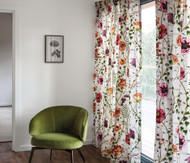The Home Library's Curtain Measurement Guide
2nd Apr 2022
We love curtains, they are basic in any interior and can embellish your room and improve its light and look, blending every little detail thought about your decor.
At The Home Library, we offer a measuring service available as part of our curtain fitting; however, if you prefer to use your measurements, for either a quote or as an order, we have developed this easy curtain measurement guide so you can get this right and make the most of your curtains.
Measuring the width
For this step of curtain measurement, we recommend that you have a pole or track in place and measure the pole without including the end finials or total track width.
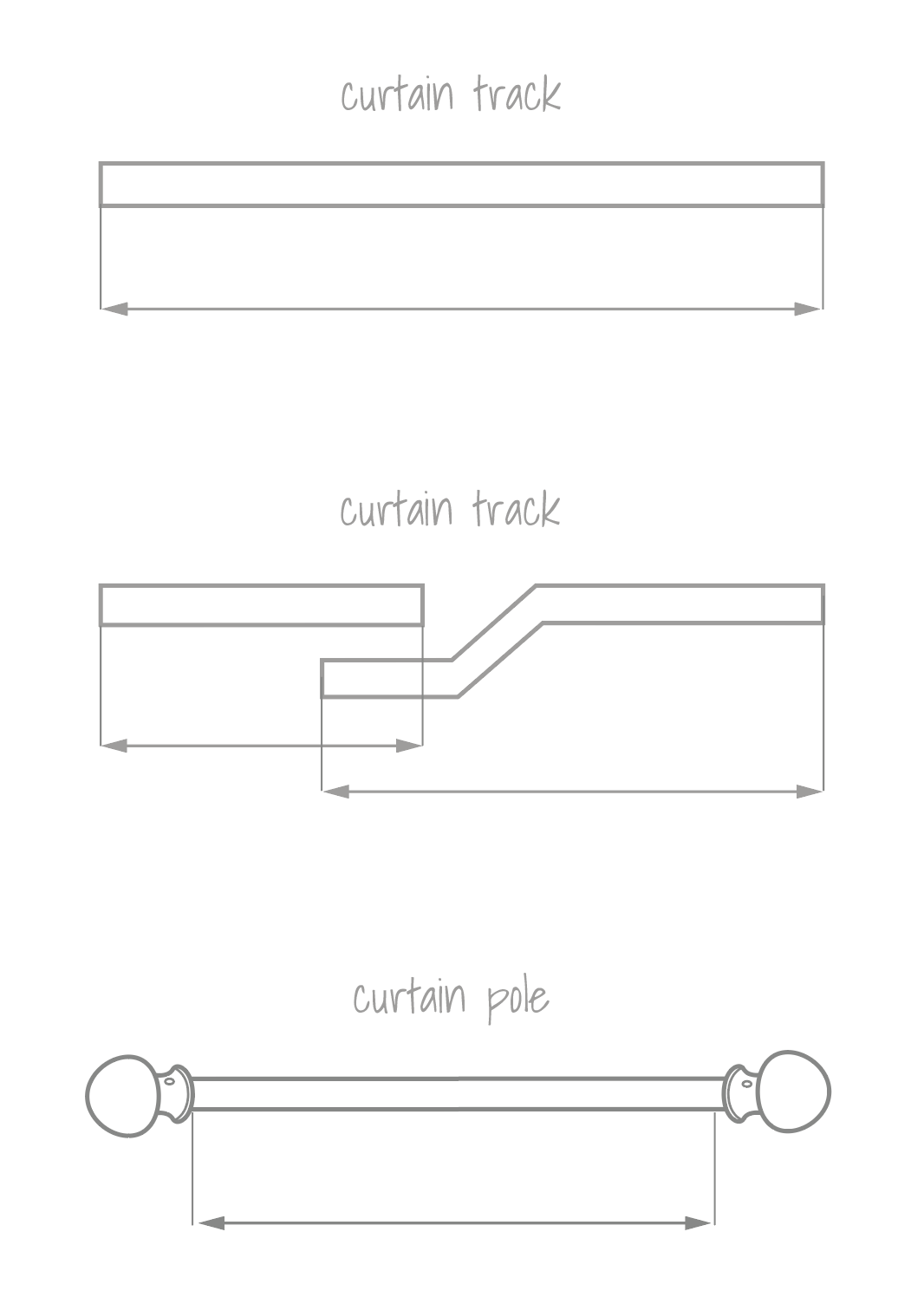
Not got your pole yet? For allowing most of the light in the room, it's ideal that Poles extend the window width by 20-25cm. This way the curtains will pull neatly back and you get a perfect result with your curtain measurement. Position the underside of the pole 15cm above the window.
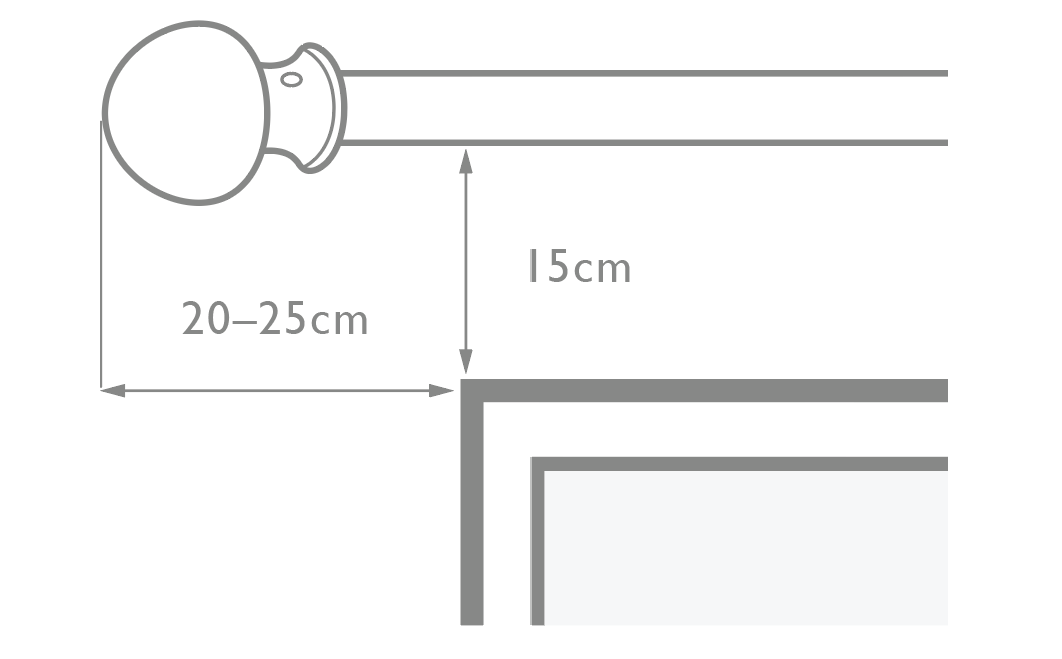
Decide on the hem position
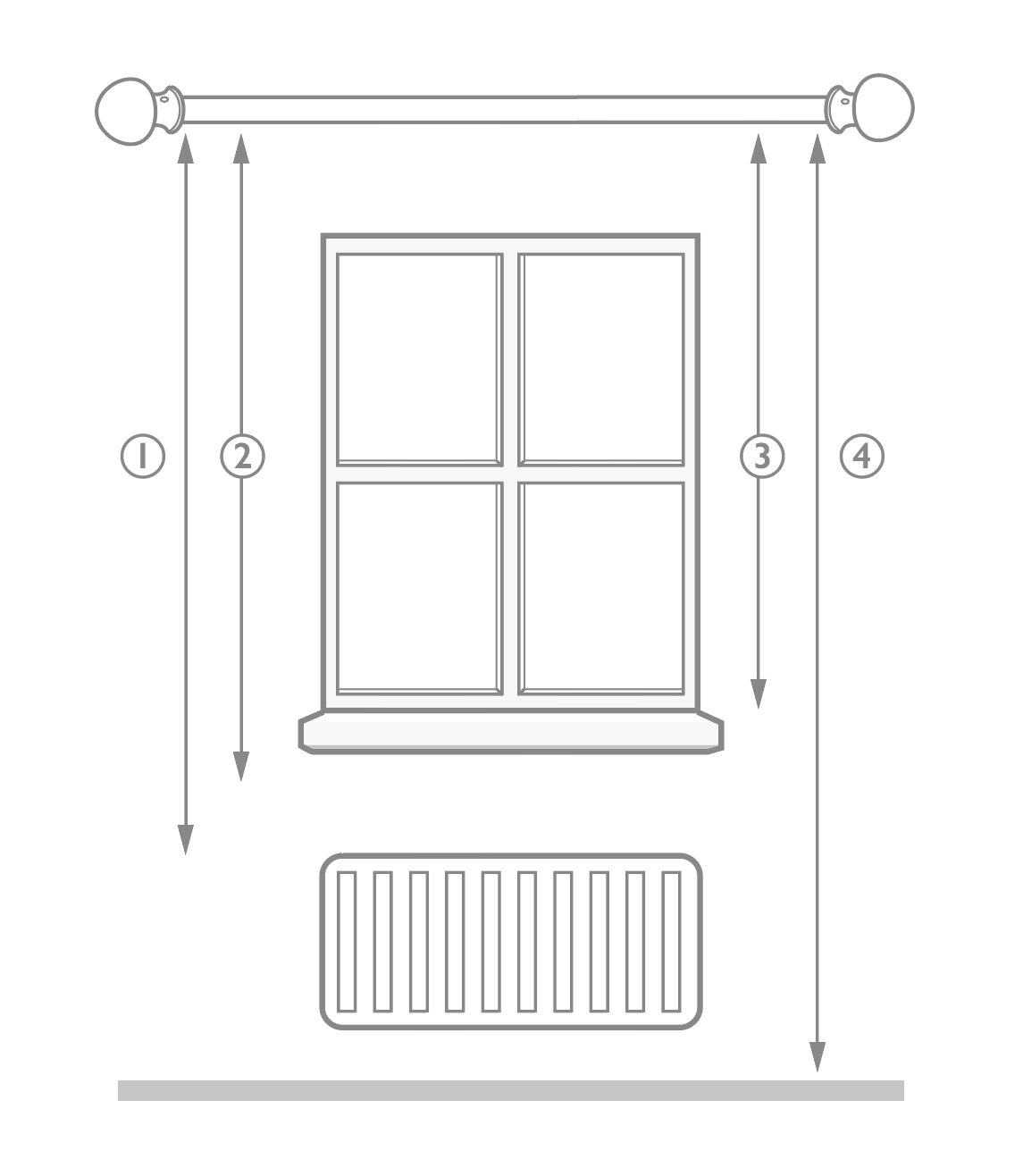
1. Below window sill:
20cm below the sill
2. Below sill with radiator:
1cm above the radiator
3. Window sill:
1cm above the window sill
4. Floor level:
1cm clearance above the floor
Other lengths:
Just touching
Choose this length for a modern interior look and a clean finish, great for new builds.
Normal pooling
Add 5cm of fabric to your curtain height to create natural pools that soften the look.
Generous Pooling
Add 12cm of fabric to create a dramatic luxe look which also conceals uneven floors!
Top Tip
Use a steel tape measure for the most accurate measurements and don’t forget to write them down as you go along.
Measuring the drop
Eyelet Headings
Measure from the top of the pole to your required hem position, this is the eyelet drop. Our curtain maker will add 3.5cm (the amount of curtain above the eyelet hole) for your finished curtain length.
Gathered Headings
Poles: Measure from the underside of the pole ring to make the pole visible.
Tracks: Measure from the top edge of the track to hide it.
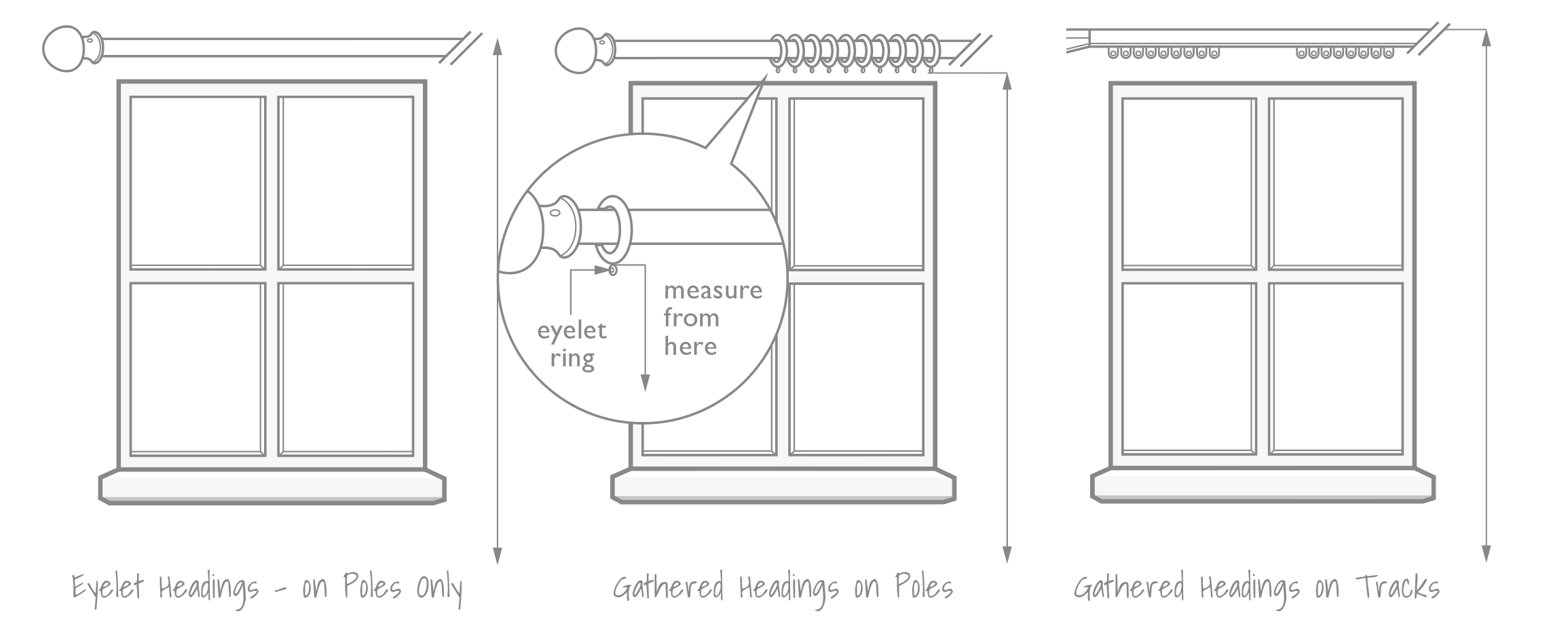
Wave Headings
Unless you are using our fitting service we recommend that you have your track in place before measuring for the style of curtain. Always measure in three places for both the width and the drop and use the smallest measurements.
Outside Window Recess
Measure the exact size of the area you would like the curtains to overlap - we suggest at least 15cm at the top and 15cm on each side.
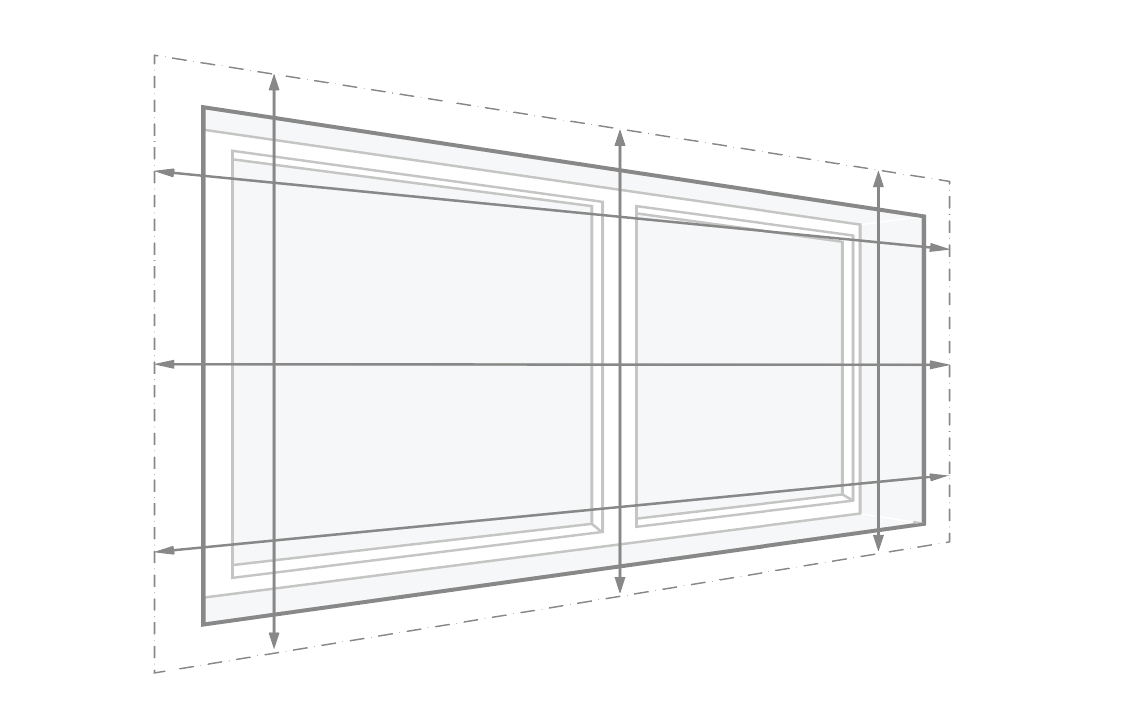
Inside Window Recess
Measure from the bottom of the track to where you want the curtain to sit, this should clear the floor or sill by a minimum of 12mm to glide freely and hang evenly.
Please note that wave curtains require at least 10cm clearance from the track to the window.
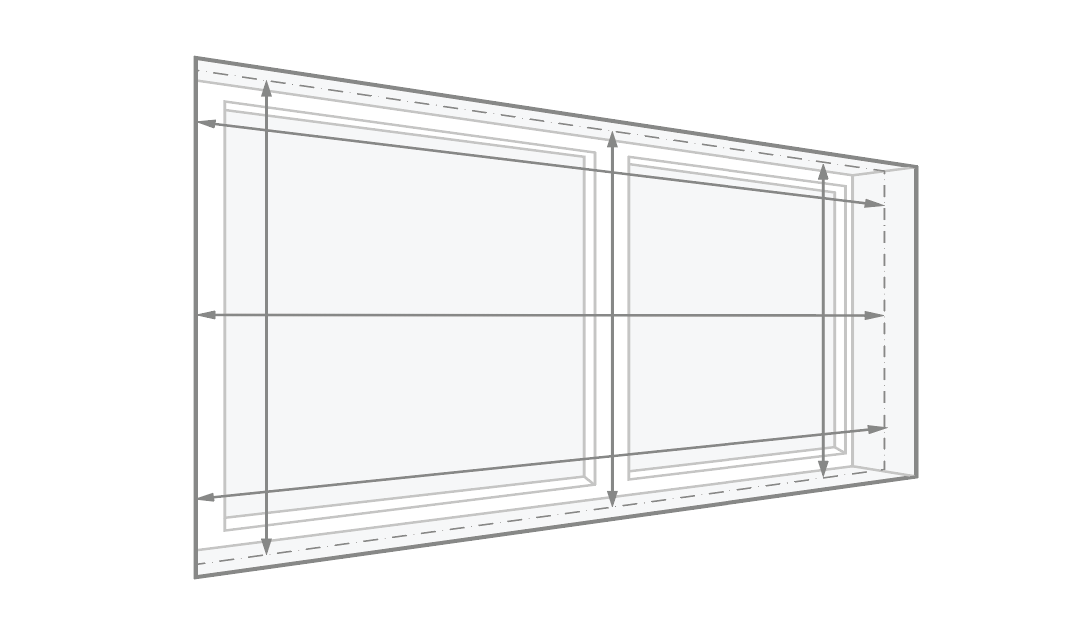
Measuring For Blinds
Inside Window Recess
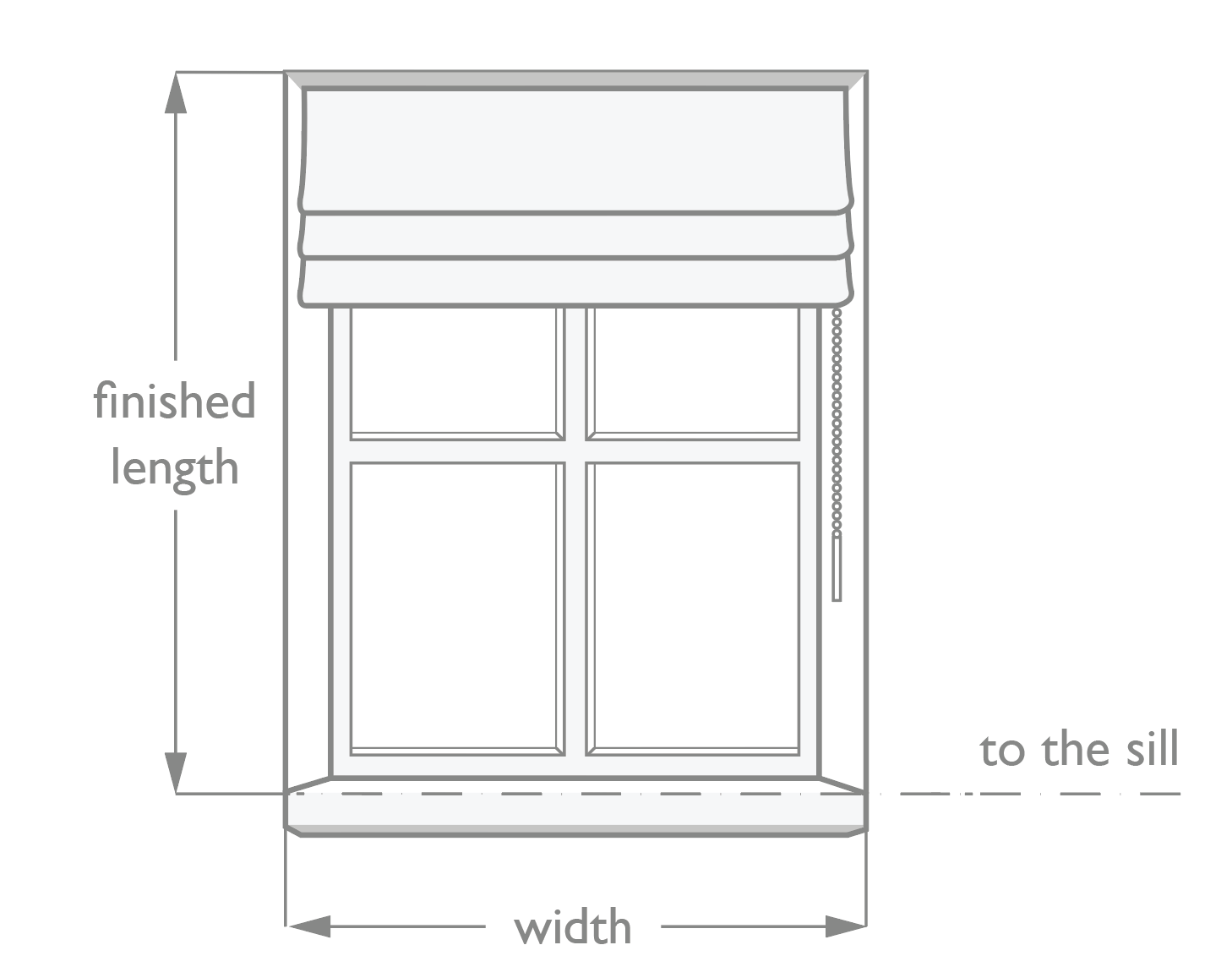
Drop
Measure the length from the top of the reveal to the sill in at least three places, as your window may not be square and the shortest drop measurement to ensure you don’t have one side too long and crumpling on the window sill. This is the finished length of your blind.
Width
Measure the width of the reveal at its narrowest point. Give actual window measures as all allowances are calculated at our workshop.
Note: Complete blackout will not be achieved with a recessed blind.
Top tip
If fitting a recessed blind yourself, ensure that the blind is far enough away from the window handles to prevent obstruction.
Outside Window Recess
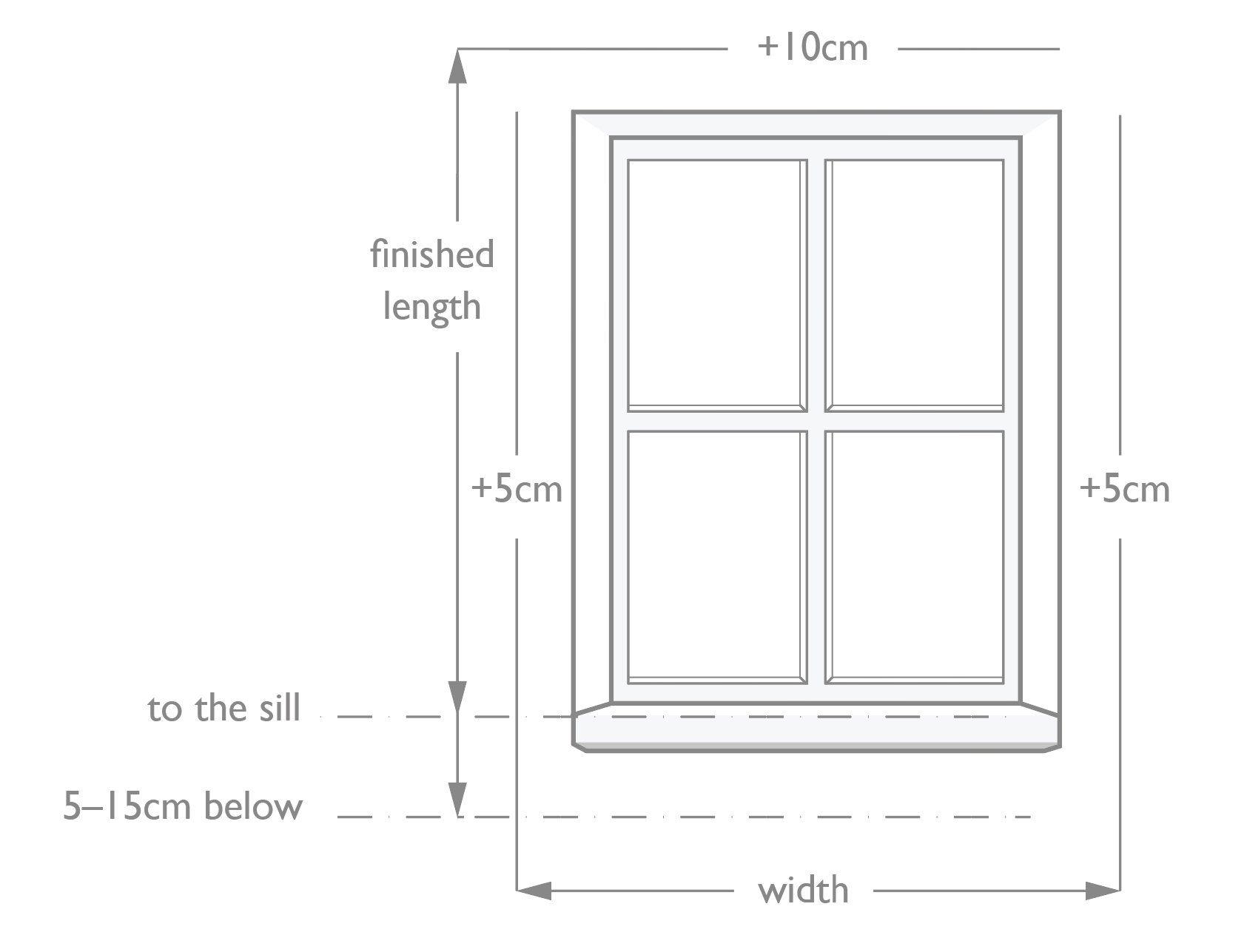
Drop
The top of the blind usually looks best at 10cm above the reveal. For the hem position, blinds usually fall 5–15cm below the sill, to the sill if the sill projects or 2cm above a radiator. Measure the length between the top of the blind and the hem position. This is the finished length. Also, confirm the height from top to floor for sidewinder chain calculation and confirm the left or right side for the sidewinder.
Width
Decide how much the blind is to overhang beyond the reveal and add this to your reveal width (usually, at least 5cm on each side - check for obstructions). This gives your finished width.
Top tip
Always provide a measure from the blind top to the floor to allow for chain sidewinder length calculation. Fitted on the side to suit best. finished length width +10cm +5cm +5cm to the sill finished length to the sill 5–15cm below the width.

